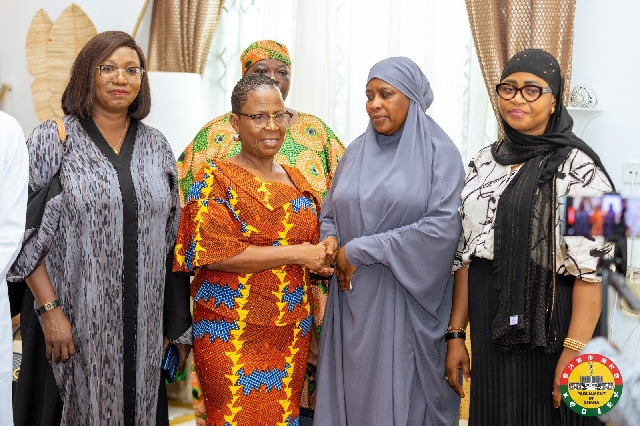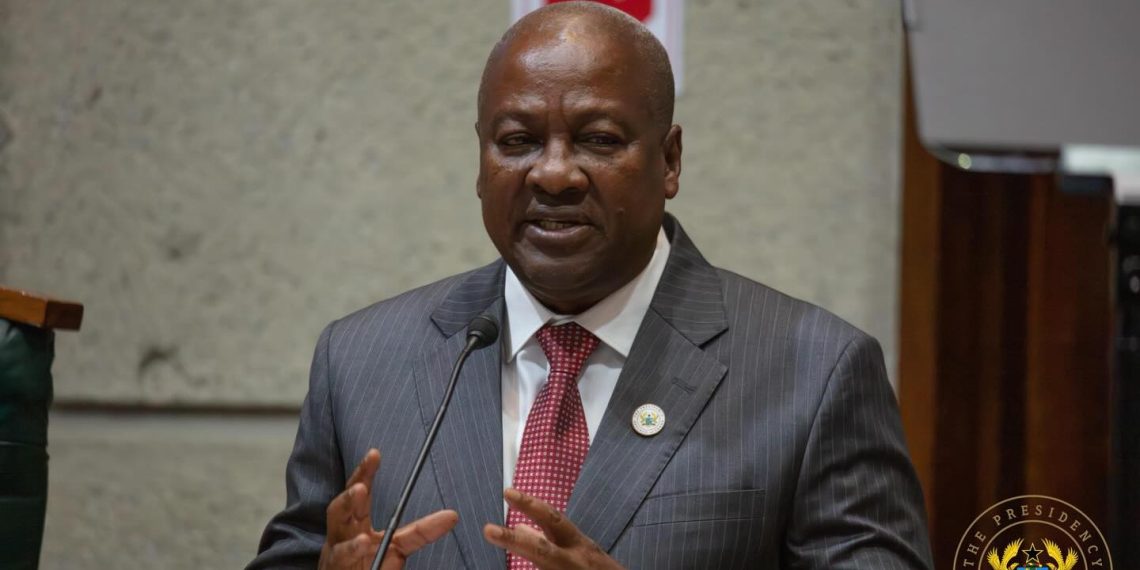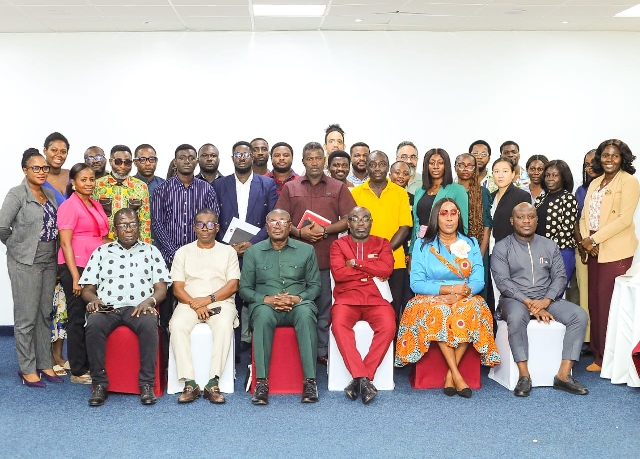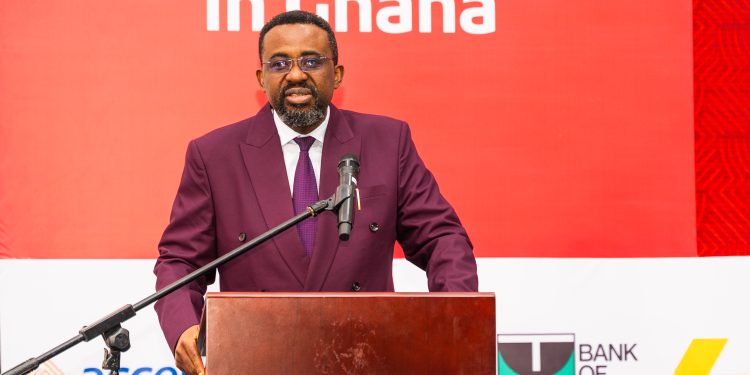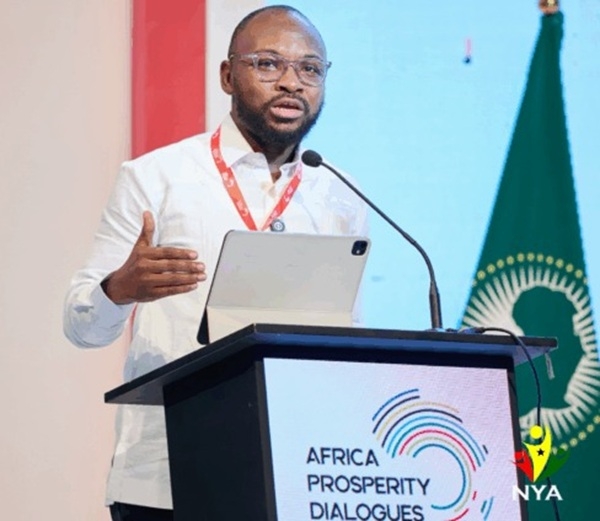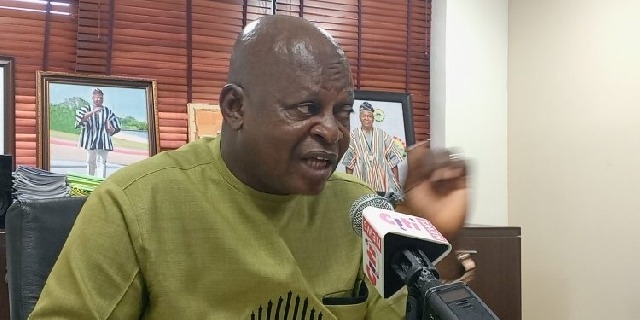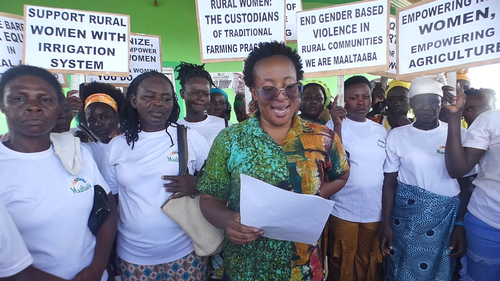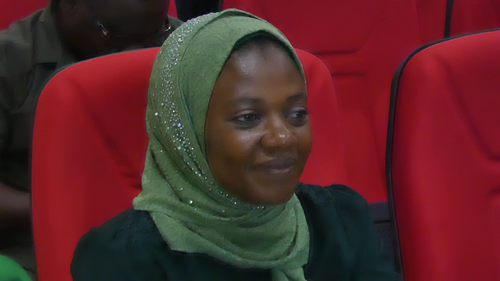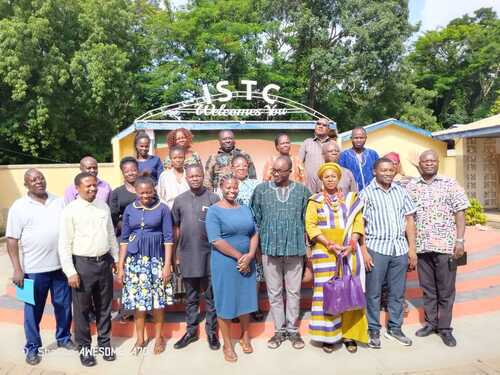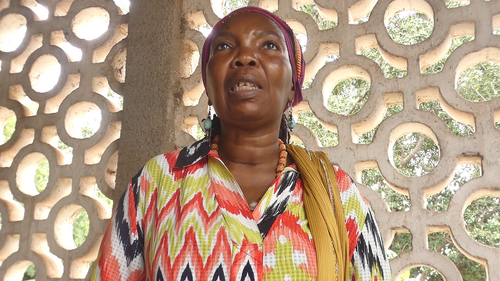Feature By Ngamegbulam Chidozie Stephen As I traveled through the Upper East, North East, Upper West, Northern, and Savannah regions, I heard a recurring theme from farmers: frustration. The source of their frustration was not drought, pests, or diseases, but rather the high cost of agrochemicals, particularly fertilizers. However, their concerns are deeply intertwined with the escalating impacts of climate change. Farmers in these regions, who rely heavily on agriculture for their livelihoods, expressed their concerns about the escalating prices of fertilizers. They lamented that the high cost of these essential inputs was eating into their profits, making it difficult for them to sustain their farming businesses. Climate change has exacerbated this issue, as rising temperatures and changing rainfall patterns have led to decreased crop yields, forcing farmers to rely more heavily on agrochemicals to maintain productivity. Moreover, the intensive use of chemical fertilizers can lead to soil degradation, water pollution, and loss of biodiversity – all of which are further exacerbated by climate change. As temperatures rise, soil moisture decreases, and extreme weather events become more frequent, the use of chemical fertilizers can have devastating consequences for the environment. The farmers’ concerns are not unfounded. Climate change is projected to increase temperatures in West Africa by up to 3.5°C by 2100, leading to more frequent droughts, floods, and heatwaves. This will have a disproportionate impact on smallholder farmers, who are already struggling to adapt to the changing climate. Grass Biochar a game changer The concept of biochar has been around for over 2,000 years, dating back to the “slash-and-burn” agricultural method practiced by ancient civilizations. However, the modern understanding and application of biochar as a tool for environmental management and climate change mitigation have developed significantly over the past few decades. The term “biochar” emerged in the early 2000s, in conjunction with growing concerns about soil management and carbon sequestration.¹ Since then, research and development of biochar technologies have accelerated, with various organizations and initiatives promoting its use as a sustainable solution for environmental and agricultural challenges. Some notable milestones in the development of biochar include: A. 2001: The International Biochar Initiative (IBI) was established to promote the use of biochar for environmental management and climate change mitigation. B. 2009: The IBI published a report highlighting the potential of biochar to mitigate climate change by sequestering carbon in soils. C. 2012: Researchers began exploring the use of biochar as a soil amendment to improve soil fertility and reduce greenhouse gas emissions. D. 2024: The Biochar Basics series was published, providing introductory information on biochar used as a container substrate component. Today, biochar is recognized as a multifunctional material with various applications, including carbon sequestration, soil fertilization, water filtration, and contaminant immobilization. Innovative Grass Biochar Offers Promising Solutions for Climate Change and Sustainable Agriculture However, despite all these years of Biochar existence, no scientist or researcher has come out with the innovation of ‘Grass Biochar’. Fortunately, following the skyrocketing increase of chemical fertilizers and some other farming inputs which has become huge challenge for farmers especially in the northern parts of Ghana, in a groundbreaking development, Prof. David Millar of the Millar Institute for transdisciplinary and Development Studies (MITDS) went into research and later came out with ‘Grass Biochar’, an organic fertilizer with the potential to significantly combat climate change while promoting sustainable agriculture. This innovative product harnesses the power of biochar, derived from grass, to provide numerous environmental benefits. One of the key advantages of ‘Grass Biochar’ is its ability to store carbon in the soil for extended periods. By converting grass into biochar, the carbon is locked away, effectively reducing atmospheric CO2 levels and helping to slow global warming. Studies indicate that widespread adoption of biochar could remove up to 10 gigatons of CO2-equivalent from the atmosphere annually, with the potential to decrease global greenhouse gas emissions by 10-20%. In addition to its carbon-sequestering properties, Grass Biochar enhances soil health by improving fertility, structure, and water-holding capacity. This leads to better plant growth, reduced soil erosion, and healthier ecosystems, as resilient soils can absorb and store even more carbon. Moreover, Grass Biochar plays a vital role in reducing greenhouse gas emissions. It has shown effectiveness in lowering nitrous oxide (N2O) and methane (CH4) emissions from soils. By promoting efficient nutrient cycling, it minimizes the need for fertilizers, thus further decreasing N2O emissions. Grass Biochar also supports regenerative agriculture practices, which promote soil conservation and biodiversity. By utilizing readily available biomass like grass, its production encourages sustainable land management while also addressing the issue of waste, as grass is often viewed as a nuisance. The benefits of Grass Biochar extend to climate change adaptation as well. Fields enriched with biochar exhibit improved drought resilience and enhanced water retention, helping farmers navigate climate variability and extreme weather conditions effectively. Furthermore, the potential impact goes beyond environmental benefits. The Grass Biochar initiative could create job opportunities in production and application sectors. Enhanced soil fertility leads to improved crop yields, thereby bolstering food security and availability. To fully realize the climate change mitigation potential of Grass Biochar, government support is essential. Recommendations for action include research funding to explore optimal production methods and scalability, as well as policy incentives such as subsidies or carbon credits to encourage farmer adoption. Educating farmers, policymakers, and stakeholders about the benefits of biochar and best practices will also be crucial for successful implementation. Prof. Millar’s Grass Biochar not only presents a viable solution to tackle climate challenges but also promotes sustainable agriculture, ultimately contributing to a more secure food future. Engaging Prof. Millar, he emphasized that the resources required for grass biochar production are readily available at the local level, unlike chemical fertilizers. He revealed the project has reached 11 communities across 5 regions, aims to train women’s groups in the production of grass biochar, a revolutionary organic fertilizer. The impact of this initiative has been nothing short of remarkable. Women who were once struggling to make ends meet are now equipped with the knowledge
Maaltaaba Women Celebrates International Rural Women’s Day
The Maaltaaba Peasant Women Farmers’ Cooperative in the Talensi District of Ghana’s Upper East Region came alive with vibrant celebrations as they observed International Rural Women’s Day. Apexnewsgh reports Rural women from various communities gathered in Yamiriga for a float, proudly holding placards that highlighted their contributions and the challenges they face. Amidst the festivities, Miyella Lydia, the Executive Director of the cooperative, delivered a powerful speech, emphasizing the pivotal role rural women play in their families, communities, and nations. She expressed, “International Rural Women’s Day is a special opportunity to celebrate the dedication and perseverance of these extraordinary women.” During her speech, Lydia shed light on the challenges faced by rural women, such as limited resources and social barriers. She mentioned that according to data from the Statistical Service, 1.5 million rural women are engaged in vulnerable employment. Despite these obstacles, rural women are the backbone of food systems, economies, and societies, possessing invaluable knowledge and driving innovation. The theme of this year’s celebration, “Rural Women Cultivating Good Food for All,” deeply resonated with the cooperative. Lydia stressed the importance of empowering rural women for food security, environmental sustainability, and equitable opportunities. Through their initiatives, the Maaltaaba Peasant Women Farmers’ Cooperative has witnessed rural women achieving success through collaboration, entrepreneurship, and leadership. However, Lydia highlighted the need for more advocacy for policies upholding rural women’s rights, providing education and training, and ensuring access to information and technology. Addressing the rural women, Lydia emphasized, “Your voices are significant, and your contributions are invaluable. Empowering you remains our top priority.” She also urged partners and stakeholders to join in solidarity and collective action toward a more just world for all. “International Rural Women’s Day is not merely a celebration; it is a call to action. Let us commit to empowering rural women, improving our communities, and building a brighter future for everyone.” The Yameriga Assembly member praised the rural women. He said, the cooperative, consisting of 1,250 women including widows, single mothers, and farmers with disabilities, has brought about significant positive changes through their farming activities. Their impact is felt not only within their own community but also in neighboring areas, where people visit to learn from their innovative initiatives. The cooperative has focused on establishing fruit trees and diverse crops, which not only support the women themselves but also serve as a model for others to follow. They have also been farming vegetables for both community consumption and personal use, showcasing their resourcefulness and dedication to sustainable agriculture. These women have not only improved their own productivity and household incomes but have also broken social barriers and achieved economic stability through training and advocacy. Their efforts have been widely praised, with the Yamriga Electoral Area Assembly Member commending their work and expressing gratitude to organizations like FFF, FAO, and Star-Ghana for their support. One of the most impressive aspects of their work is their creation of their own manure to fertilize their farms, demonstrating their commitment to sustainable and self-sufficient farming practices. The Maaltaaba Cooperative serves as an inspiring example of how collective action and dedication can bring about tangible and positive change in rural communities. Source: Apexnewsgh.com/Ngamegbulam Chidozie Stephen Contact: +233248250270/+233256336062 for your publications
Addressing Climate Change’s Impact on Women in Agriculture
Madam Jangu Barikisu Alhassan, representing Women in Agricultural Development Directorate (WIAD) in the Upper West Region, has highlighted the devastating effects of drought on farmers due to climate change at the 2024 GhaFFap National Dialogue Series in Bolgatanga the Upper East Regional Capital. Apexnewsgh reports According to Madam Barikisu, Climate change poses significant challenges to smallholder farmers, particularly women, who face limited access to land, productive resources, and finance. She further emphasized the need for collaborative efforts to address these worrying issues. Advocacy for women’s access to land and resource, Collaborative efforts with traditional leaders and policymakers, Financial inclusion and empowerment for women and Joint action with men to promote gender equality are some of the issues she raised during the National Dialogue. The theme for the 2024 GhaFFap National Dialogue says “Small holder producer organizations access to finance market linkages and social protection key to delivering sustainable climate resilience and green recovery,” Source: Apexnewsgh.com/Ngamegbulam Chidozie Stephen/Bolgatanga
Mainstreaming Grass Biochar in Agriculture: A way to go for Farmers–Clifford Amoah Adagama
Clifford Amoah Adagama, of Kessena Nankana Cooperative Baobab Processors Union (KANBACU), has emphasized the potential of grass biochar to transform agriculture in the region. Apexnewsgh reports Speaking at a dialogue meeting organized by the Millar Institute for Transdisciplinary and Development Studies (MITDS) in Bolgatanga, Mr. Adagama highlighted the benefits of mainstreaming biochar into agricultural production. Mr. Adagama noted that introducing biochar to dry season farming can help reduce the reliance on chemical fertilizers, promote soil rejuvenation, and increase fertility levels. This innovation has the potential to support women farmers who struggle to access capital for chemical fertilizers. KANBACU has already received training on biochar production and has started initial pilots. Mr. Adagama stressed the need for government support to scale up this innovation, advocating for a seed fund to be established for environmental conservation and protection initiatives. This fund would enable innovators to access resources to develop and scale their technologies, reducing the environmental impact of bushfires in the region. According to him, the adoption of grass biochar in agriculture has the potential to reduce pressure on farmers, promote conservation, and increase household income. Mr. Adagama’s call to action emphasizes the importance of government investment in this innovation to reduce the environmental impacts of bushfires and promote sustainable agriculture practices. Source: Apexnewsgh.com Thanks for reading from Apexnewsgh as a news publishing website from Ghana. We encourage you to freely share this story via social media platform and follow us on; Facebook on APEXNEWSGH-Tv or Please contact Apexnewsgh.com on email apexnewsgh@gmail.com for your credible news publications. Contact: 0248250270/0256336062
Embracing Grass Biochar: A Game-Changer for Farmers in Talensi
Peter Abunga, Department of Social Welfare and Community Development Talensi, has expressed his enthusiasm for grass biochar, a innovation that has the potential to revolutionize farming in the region. Apexnewsgh reports Speaking at a dialogue meeting organized by the Millar Institute for Transdisciplinary and Development Studies (MITDS) in Bolgatanga, Mr. Abunga shared his views on the benefits of grass biochar, highlighting its potential to improve soil fertility, reduce the need for chemical fertilizers, and increase water retention in the soil. Mr. Abunga, who comes from a farming background, emphasized the significance of this innovation for farmers in the region. He noted that the use of chemical fertilizers has become increasingly expensive, making it difficult for farmers to afford. Grass biochar, on the other hand, is a cost-effective and sustainable solution that can help enrich soil fertility, reduce soil erosion, and increase crop yields. The Department and Community Development Talensi official expressed his gratitude to the Millar Institute for introducing this innovation and urged the government to intervene and support the implementation of grass biochar in farming practices. He emphasized that government backing is crucial for the success of this policy, particularly in the context of the Planting for Food and Jobs initiative. Mr. Abunga’s endorsement of grass biochar is a testament to its potential to transform farming in Talensi and beyond. As a community leader, his support is essential in promoting this innovation among farmers and encouraging its adoption. “With government support, grass biochar can become a game-changer for farmers in the region, improving their livelihoods and contributing to food security”. He stressed Source: Apexnewsgh.com Thanks for reading from Apexnewsgh as a news publishing website from Ghana. We encourage you to freely share this story via social media platform and follow us on; Facebook on APEXNEWSGH-Tv or Please contact Apexnewsgh.com on email apexnewsgh@gmail.com for your credible news publications. Contact: 0248250270/0256336062
Grass Biochar, a life saver for us as Ghanaians– Abu Dokuwie Alhassan
Abu Dokuwie Alhassan, Executive Director of Capacity Enhancement and Community Support (CAPECS), has emphasized the significance of the Grass biochar innovation introduced by the Millar Institute for Transdisciplinary and Development Studies (MITDS). He describes the innovation as a life saver. Apexnewsgh reports This technology has the potential to restore environmental dignity, improve soil health, and increase productivity. Alhassan highlighted the widespread use of chemical fertilizers by farmers in Ghana, which harms the environment and perpetuates reliance on imported products. He stressed the need to promote indigenous technologies like grass biochar, which can create jobs, generate generational wealth, and improve soil health. “As far as am concerned, biochar is a life saver for us as Ghanaians, biochar serves as a very important manure and you realized in recent times practically every farmer have resorted to the use of chemicals and that is disingenuous to our environment. If we can promote the use of indigenous technology like this biochar that is been introduced by Millar Institute, i think we have the opportunity to make our soil better” Sharing his personal experience as a farmer, Alhassan noted the high cost of chemical fertilizers and the burden it places on rural farmers. He emphasized that adopting indigenous approaches can reduce costs, improve soil health, and increase income for farmers. Alhassan called on the government to promote the use of indigenous technologies and reduce reliance on imported chemical fertilizers. By doing so, Ghana can create a more sustainable and self-sufficient agricultural sector that benefits both farmers and the environment. The benefits of grass biochar include: Improved soil health, Increased productivity, Job creation in the grass economy, Generational wealth creation, Reduced costs for farmers, Improved soil health, Increased income for farmers By embracing this innovation, Ghana can take a significant step towards sustainable agriculture and environmental restoration. Source: Apexnewsgh.com Thanks for reading from Apexnewsgh as a news publishing website from Ghana. We encourage you to freely share this story via social media platform and follow us on; Facebook on APEXNEWSGH-Tv or Please contact Apexnewsgh.com on email apexnewsgh@gmail.com for your credible news publications. Contact: 0248250270/0256336062
Grass Biochar: Adding Value to grass will go a long way in putting money into people’s pocket—Awal Ahmed Kariama
Alhaji Awal Ahmed Kariama, Executive Director of RISE Ghana, has expressed his enthusiasm for the new grass biochar innovation introduced by the Millar Institute for Transdisciplinary and Development Studies (MITDS). He believes, adding value to grass will go a long way in putting money into people’s pocket. Apexnewsgh reports During a zonal dialogue meeting in Bolgatanga, Alhaji Awal shared more interesting views on the potential of this technology to improve soil health, increase productivity, and reduce poverty. Ahmed highlighted the challenges faced by farmers, including the high cost of inputs, particularly fertilizer. He emphasized that the introduction of briquettes from this innovation will significantly reduce the cost of farming, leading to improved income for farmers and reduced poverty levels. “As for farmers, some challenges that they have is the high cost of inputs and by inputs particularly fertilizers, is very expensive for most of our farmers and so the introduction of grass biochar will go a long way in reducing the cost of farming for our farmers and by reducing the cost of farming that means that the impact in terms of the income the farmer is going to get, is going to improve and when that is improved the level of poverty in the house is improved” He said As an NGO focused on supporting vulnerable groups, RISE Ghana sees the potential for grass biochar to benefit women, persons with disabilities, and other marginalized communities. Ahmed expressed his organization’s commitment to exploring ways to integrate this innovation into their strategic plan, focusing on income generation, promoting inclusion, and reducing economic vulnerability. “If we add value to grass like Prof Millar is trying to do I think it will go a long way to equally put money into people’s pocket, but it will also help protect our environment. So, for me I see it as a very creative idea, and I think everybody who interested in the environment who is interested in reducing poverty should come all out and support this to become a reality” He tressed Regarding policy, Ahmed acknowledged the importance of government support but emphasized the need to leverage existing policies and entry points to promote this innovation. He called on the government to take immediate action to support sustainable agriculture and environmental restoration through innovative technologies like grass biochar. Source: Apexnewsgh.com Thanks for reading from Apexnewsgh as a news publishing website from Ghana. We encourage you to freely share this story via social media platform and follow us on; Facebook on APEXNEWSGH-Tv or Please contact Apexnewsgh.com on email apexnewsgh@gmail.com for your credible news publications. Contact: 0248250270/0256336062
Stakeholders Gather in Wa for Grass Economy Innovation Dialogue
The Millar Institute for Transdisciplinary and Development Studies (MITDS) recently organized a stakeholder’s dialogue in Wa, Upper West, to discuss the innovative grass economy. Apexnewsgh reports The event brought together individuals, organizations, groups, and departments interested in the grass biochar project. Farmers who attended the dialogue were particularly enthusiastic about the potential of grass biochar. They emphasized its ability to improve soil longevity, exceeding three years, unlike chemical fertilizers which only have a one-year span and primarily benefit crops, not the soil. The dialogue provided a platform for participants to make voluntary pledges on promoting and marketing the grass bio project in their communities. The theme of the event was “Reversing Deforestation, Eliminating Bushfires and Land Degradation, Using Grass Economy Innovation as a Vital Entry Point.” The stakeholder’s dialogue was a significant step forward in exploring the potential of grass biochar to address environmental and agricultural challenges in the region. By bringing together diverse stakeholders, MITDS facilitated a collaborative approach to promoting sustainable development and innovation in the Upper West region. Source: Apexnewsgh.com Thanks for reading from Apexnewsgh as a news publishing website from Ghana. We encourage you to freely share this story via social media platform and follow us on; Facebook on APEXNEWSGH-Tv or Please contact Apexnewsgh.com on email apexnewsgh@gmail.com for your credible news publications. Contact: 0248250270/0256336062
NADMO Regional Auditor Expresses Interest in Grass Innovation for Sustainable Development
Suayam Janet, the North East National Disaster Management Organisation (NADMO) Regional Auditor, recently participated in a regional stakeholder’s dialogue organized by the Millar Institute for Transdisciplinary and Development Studies (MITDS). Apexnewsgh reports The event showcased an innovative approach to converting grass into charcoal and biochar, which caught Suayam Janet’s attention. Initially surprised by the concept, Suayam Janet acknowledged that it was her first time hearing about using grass for biochar production. However, after learning about the success stories and the project’s overview, she became convinced of its potential benefits for crucial sectors such as agriculture. Suayam Janet highlighted the potential of grass biochar in preventing bushfires and enhancing food security. She expressed her intention to engage stakeholders and explore the possibility of bringing the innovation to the North East Region. By organizing women’s groups and educating them about the project, Suayam Janet believes that the community can benefit from this sustainable approach. As NADMO works to combat bushfires, Suayam Janet sees an opportunity for collaboration and knowledge sharing. By converting grass into charcoal, the final product can provide a sustainable solution for the community. Suayam Janet’s enthusiasm and willingness to engage with the Millar Institute demonstrate the potential for regional development and innovation. Source: Apexnewsgh.com Thanks for reading from Apexnewsgh as a news publishing website from Ghana. We encourage you to freely share this story via social media platform and follow us on; Facebook on APEXNEWSGH-Tv or Please contact Apexnewsgh.com on email apexnewsgh@gmail.com for your credible news publications. Contact: 0248250270/0256336062
GhaFFaP President Advocates for Sustainable Practices and Grass Biochar Application
The National President of the Ghana Federation of Forest and Farm Producers (GhaFFaP) and a leader for Savannah Women Farmer Association (SWFA), Madam Alima Sagito Saeed, has stressed the need for sustainable practices and the application of grass biochar to improve soil fertility and promote environmentally conscious farming methods. Apexnewsgh reports Speaking at a stakeholders’ dialogue in Tamale, Madam Alima highlighted the federation’s goal of ensuring its members achieve the best possible outcomes from their investments in land and farming practices. She noted that soil fertility has become a significant issue affecting farmers but emphasized that alternatives like grass biochar can provide opportunities for improvement. The GhaFFaP president further emphasized the importance of adopting environmentally conscious practices to ensure sustainability and highlighted the federation’s efforts to restore sustainable practices and promote knowledge management over the past four years. According to Madam Alima, the federation has collaborated with the Millar Institute for Transdisciplinary and Development Studies, a research and knowledge management institution, to produce sustainable products and promote sustainability awareness. The stakeholders’ dialogue brought together state institutions, community development organizations, and partners to discuss alternative approaches to restoring forests, lands, and livelihoods. Madam Alima stressed the importance of adding value to grassroots initiatives and promoting sustainable practices to ensure a sustainable future for farming communities. She believes, the application of grass biochar, as introduced by the Millar Institute, is seen as a key solution to improving soil fertility and promoting sustainable farming practices. “By adopting this approach, farmers can improve their yields, reduce environmental degradation, and contribute to sustainable agriculture practices in Ghana”. She stressed Source: Apexnewsgh.com Thanks for reading from Apexnewsgh as a news publishing website from Ghana. We encourage you to freely share this story via social media platform and follow us on; Facebook on APEXNEWSGH-Tv or Please contact Apexnewsgh.com on email apexnewsgh@gmail.com for your credible news publications. Contact: 0248250270/0256336062

